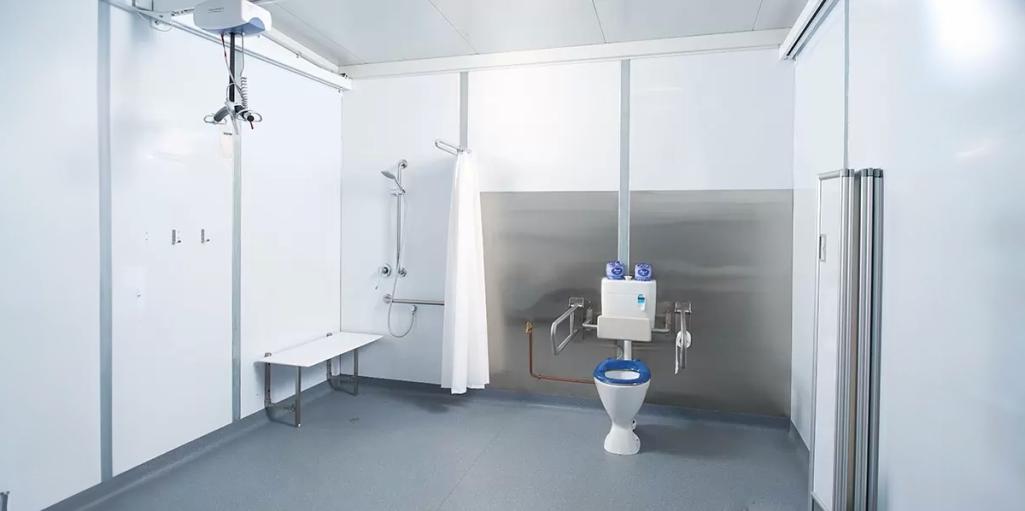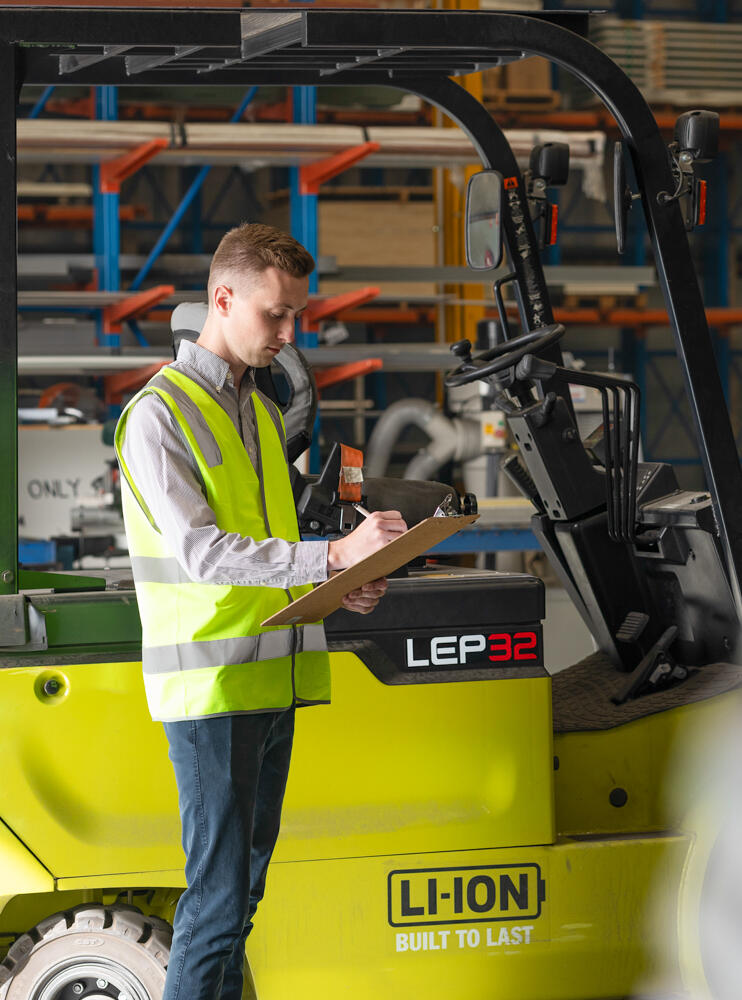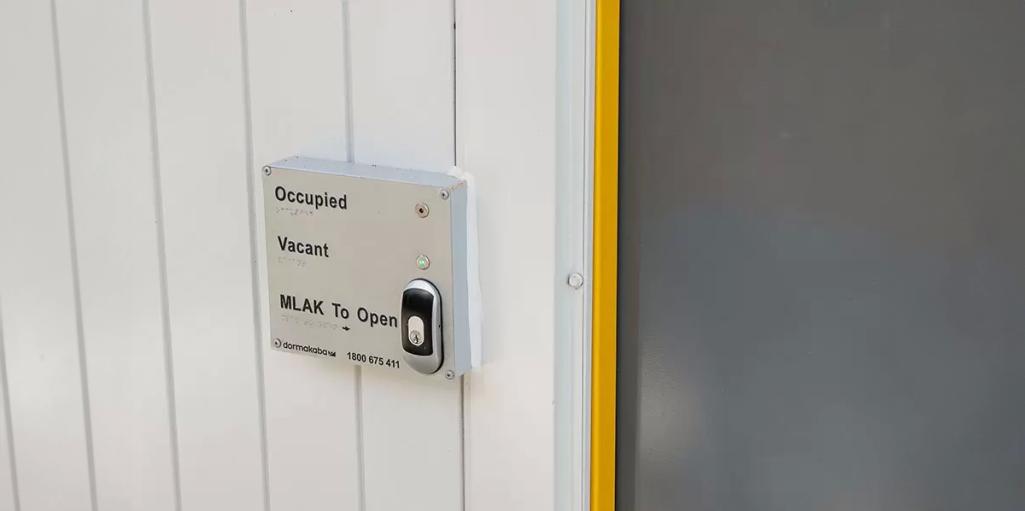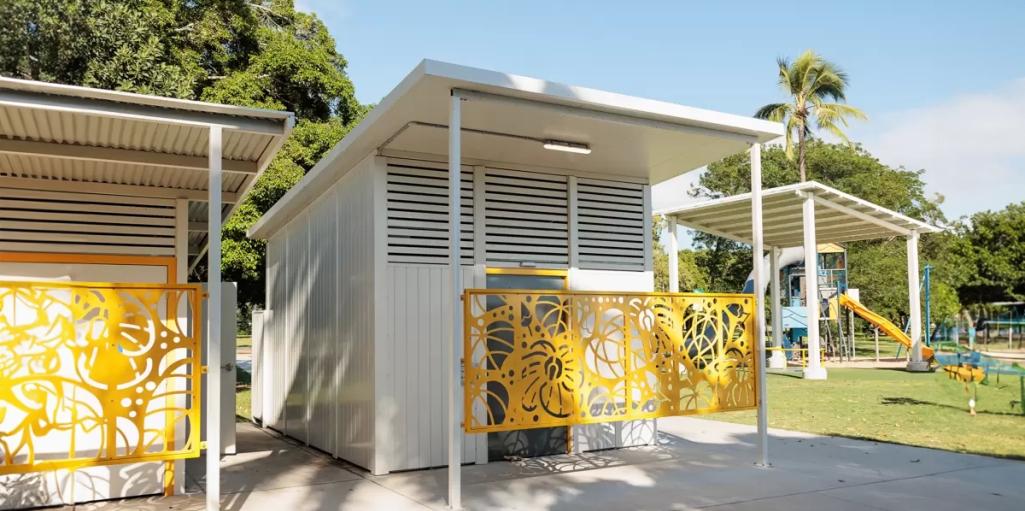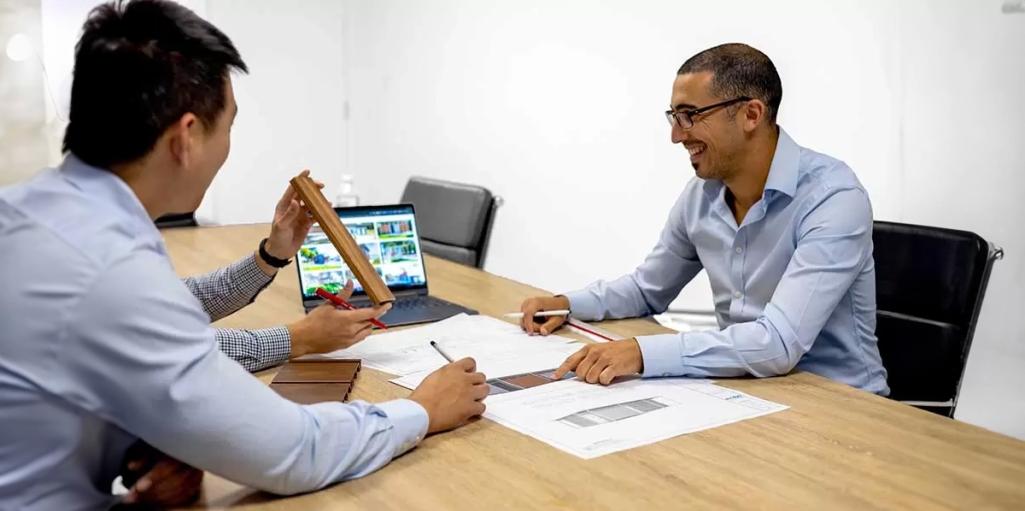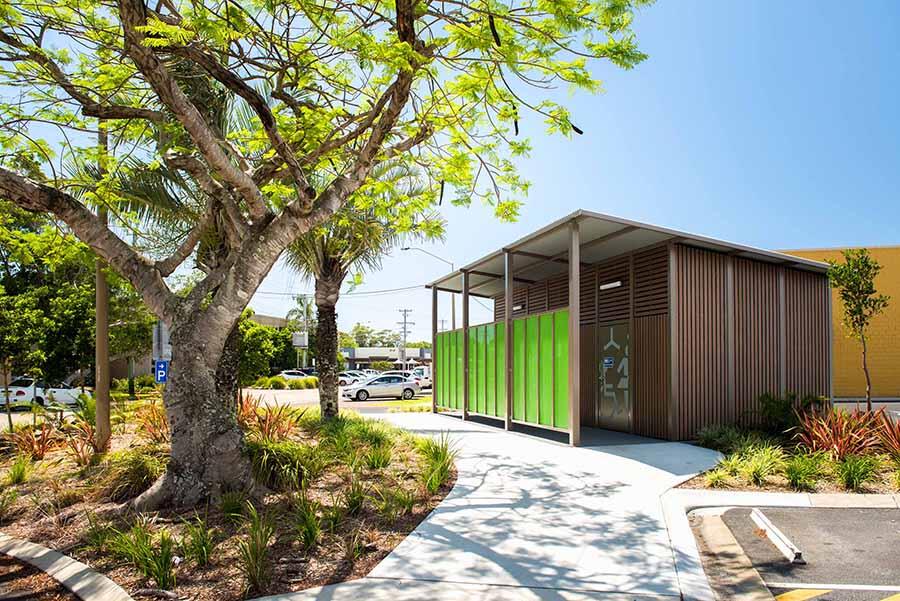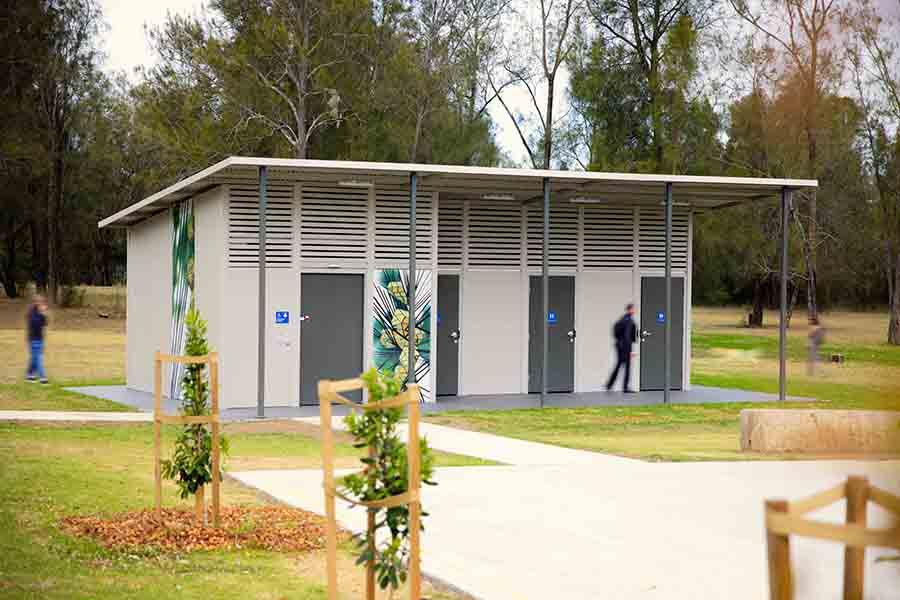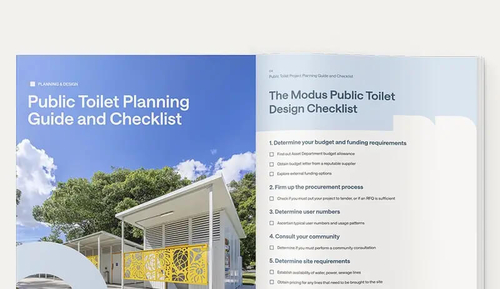How to design and deliver Changing Places toilets
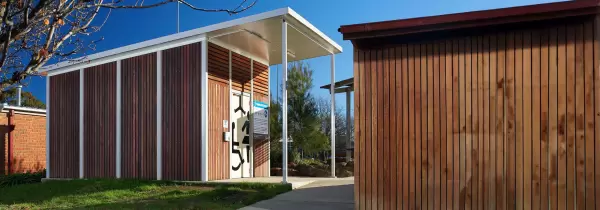
Universal access toilets do meet some of the needs of people with disabilities, like offering a level of accessibility that enables many to use public facilities with greater ease.
However, there are people with profound disabilities who require significant personal assistance to use the toilet or change continence pads. These individuals often need help not only with toileting but also with showering and other personal care tasks. Without special facilities, they are excluded from many activities that others take for granted, such as going to work, school, or university, playing in the park, or attending cultural, sporting, social and family events.
The Changing Places toilets address this need, ensuring that no member of the community has to choose between dignity and freedom. These facilities go beyond basic universal accessibility requirements to ensure that everyone, regardless of their level of mobility or assistance needs, can use the restroom safely and comfortably.
Features of a Changing Places toilet include an adult-sized changing table, a toilet, a ceiling hoist and adequate space for two people to assist. Some facilities also include a shower. Often, these facilities are part of a building incorporating cubicles that cater to other levels of mobility, including universal accessible, ambulant as well as standard toilet cubicles.
Across Australia, there is a pressing need for many more Changing Places toilets. These facilities should be available in all public locations such as shopping centres, sporting complexes, entertainment venues, along transit routes, beaches, town centres and parks. While the number of these facilities is increasing, with 259 currently across the country, there are significantly more per capita in the UK, where over 1,400 Changing Places are listed.
The necessity is clear, but how do we best design and deliver these essential facilities? In this article, we will explore just that.
Planning & Implementation
If you are considering installing a Changing Places toilets, you might be wondering how to take your project from idea to completion. Implementing a Changing Places facility requires a considered approach to ensure the success of your project. Here's our guide on how to achieve this:
Planning
Consult Your Public Toilet Building Strategy
- Ensure your plans align with your overall strategy for public toilet facilities.
Get Executive Sponsorship
- Secure support from high-level stakeholders within your organisation.
Benchmark Costs and Designs
- Research and compare costs and designs tailored to Changing Places standards.
Establish Funding Sources
- Identify where the funding will come from and ensure you have the necessary financial support.
Engage with Stakeholders
- Involve councillors, the community, and other key stakeholders to understand their expectations and ensure the project is well received.
Design
Compliant Layout Design and Equipment
Choose a layout and equipment that meet all relevant standards.
External Design
Confirm the final facility design integrates well with the surrounding area
and is aesthetically pleasing. Ensure minimal potential for damage by
vandalism.
Budget and Scope
Establish a clear project budget and scope.
Secure Approvals
Obtain necessary approvals from management and planning authorities.
Construction
Choose an Experienced Toilet Construction Partner
- Select an experienced construction project partner, like Modus Australiawith a proven track record of delivering compliant and aesthetically pleasing facilities.
Manage Construction
- Ensure the construction is completed on time, within budget, and in compliance with all Australian standards and Changing Places guidelines.
Commission the Building
- Obtain Changing Places certification and officially open the facility.
Maintain Communication
- Keep stakeholders informed throughout the project.
After a price for a project?
Fill out the form below to start the conversation with our experienced team.
Challenges
Implementing a Changing Places facility comes with its own set of challenges. Here are some common ones we've come across in our time working with past clients:Complexity of Implementation
Changing Places are specialised buildings, requiring coordination among architects, engineers and compliance certifiers. This adds significant time and complexity to the project but is crucial to ensure all standards are met and the facility integrates smoothly into public spaces.Cost of Construction
A standard accessible toilet building costs about $70,000. However, a fully installed Changing Places toilet building generally costs around $230,000, making it challenging to fit into capital works budgets without additional funding sources.Design Consultants Increase Costs
A standard accessible toilet building costs about $70,000. However, a fully installed Changing Places toilet building generally costs around $230,000, making it challenging to fit into capital works budgets without additional funding sources.
Design Consultants Increase Costs
Engaging architects, engineers and compliance certifiers can add an extra
20-25% on top of the build cost, significantly increasing the financial burden
on project planners.
Funding
Given the high cost of Changing Places facilities, securing funding is a critical aspect of project planning. Here’s how to navigate the funding landscape:
Government Grants
The Commonwealth Government contributes one-third of the cost for building
Changing Places facilities in areas that lack them, allocating $32.2 million
from 2022-2026.
Check Tranche Availability
Currently, the tranche for the 2025-2026 financial year is open. Review the
funding available and ensure your projects are 'build ready' to meet the
application requirements.
Prepare for Application
This is a complex and resource-intensive process. Coordinate with your state
or territory government to understand specific requirements and deadlines.
Finalise funding agreements with the Commonwealth by June 2025, for
Tranche 4, with construction to start within 12 months of receiving the funds.
Collaborate for Additional Funding
Identify potential funding partners to cover remaining costs, including state
and territory government grants, Commonwealth grants, capital works budgets
and private corporations.
Engage the Community
Continuous engagement with the community and stakeholders is crucial to
demonstrate support and align the project with local needs.
The Modus Solution
Given the constraints of time, cost and resources, the best solution is finding a toilet building partner with proven experience and capabilities. Modus Australia offers several advantages:
Engineered, Designed and Compliant Buildings
Modus Australia provides a wide range of pre-designed, engineered and access-compliant floorplans in several styles to suit any location. Their designs comply with all relevant standards, including AS1428 ‘Design for access and mobility’, Changing Places guidelines and CPTED guidelines.
Design Consultation
Modus offers design consultation meetings with experienced consultants to understand the unique needs of your project. They provide expert recommendations, customisable designs and funding advice. In this phase, Modus provides a basic concept design and cost estimate to assist in moving your project forward.
Clear Design, Specification, Scope and Pricing
Modus prepares detailed proposals with clear project scope, technical specifications, transparent pricing, professional design renders, and a realistic timeline to aid in stakeholder approval and project governance.
Turnkey Construction or Supported Supply
Modus offers two construction options: supported supply, where clients manage some aspects with expert support from Modus or turnkey construction, where Modus handles every aspect from planning to final handover.
Engineered, Designed and Compliant Buildings
Modus Australia provides a wide range of pre-designed, engineered and access-compliant floorplans in several styles to suit any location. Their designs comply with all relevant standards, including AS1428 ‘Design for access and mobility’, Changing Places guidelines and CPTED guidelines.Design Consultation
Modus offers design consultation meetings with experienced consultants to understand the unique needs of your project. They provide expert recommendations, customisable designs and funding advice. In this phase, Modus provides a basic concept design and cost estimate to assist in moving your project forward.Clear Design, Specification, Scope and Pricing
Modus prepares detailed proposals with clear project scope, technical specifications, transparent pricing, professional design renders, and a realistic timeline to aid in stakeholder approval and project governance.Turnkey Construction or Supported Supply
Modus offers two construction options: supported supply, where clients manage some aspects with expert support from Modus or turnkey construction, where Modus handles every aspect from planning to final handover.Changing Places Case Studies
Ballina Shire Council
David Currie Play Space, NSW
Changing Places facilities are essential for ensuring people with disabilities and high support needs can access basic amenities. However, the high costs, complex requirements and resource-intensive processes can make these projects challenging. Modus Australia simplifies this process, offering expertise and support to deliver compliant and aesthetically pleasing Changing Places facilities.
If you’re considering implementing a Changing Places facility in an upcoming project, contact Modus Australia for a consultation with one of our experienced design consultants. They can help you move your project forward with ease and confidence.
